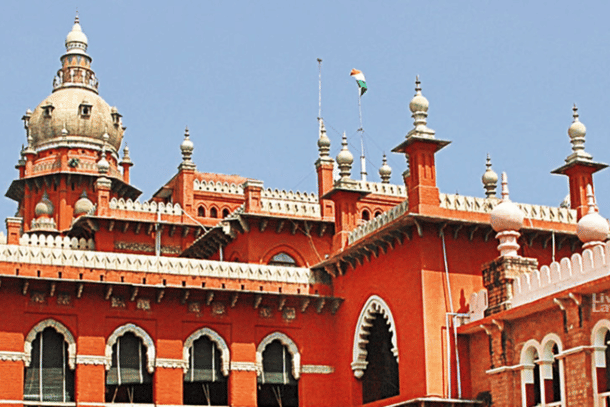Commentary
Madras High Court Takes A Stand For Junior Lawyers By Fixing Minimum Stipend
Abhishek Kumar
Jun 14, 2024, 04:47 PM | Updated 05:12 PM IST
Save & read from anywhere!
Bookmark stories for easy access on any device or the Swarajya app.


On 12 June 2024, Madras High Court passed an order directing Bar Council of Tamil Nadu and Puducherry to issue a circular instructing all bar associations to pay a minimum stipend of Rs 15,000 to Rs 20,000 to junior lawyers.
The very next day the court modified its order and asked advocates and senior advocates associated with the aforementioned Bar Council to follow the same. For lawyers practising in cities like Chennai, Madurai and Coimbatore, the minimum stipend is Rs 20,000 while in other cities it is Rs 15,000.
Reacting to the judgement, Prafulla Sharma, an advocate practising in the Supreme Court of India said, “It is a welcome order from the honourable high court. It shows that the court is cognisant of the plight of the underpaid junior lawyers. Fair compensation is crucial for junior lawyers, who often face financial challenges while gaining experience and establishing their careers.”
In legal circles, the problem of underpaid (sometimes unpaid) junior lawyers is most talked about after nepotism and the collegium system. There are multitudes of reasons behind it.
The majority of lawyers coming out of law schools have very little incentive to engage in litigation. Many find it difficult to get even a travel allowance, while lucky ones are able to secure Rs 10-12 thousand per month, that too after a few months of practice. Law firms and chambers tend to prefer interns from posh law colleges to get an aspiring lawyer on board.
Apparently, firms and senior lawyers have their own reasons to do so. The state of legal education is such that the syllabi of most law colleges in India only provide theoretical knowledge. In the name of amalgamating legal reasoning with practical experience, colleges provide options like moot courts and publishing articles.
The only real and worthy practical experience that comes their way is that of internship.
That is easy to secure, but getting a quality internship is tricky. A lot of times new law graduates come up with more than half a dozen internships and even that is not enough.
Ramanuj Mukherjee, co-founder of LawSikho says, “Unfortunately, people have bought into this myth that doing mooting and writing some college-level articles and getting good grades entitle them to get a good salary at a decent workplace. It doesn’t work that way. You were lied to.”
The reason it does not work is that in the real world, every client has different demands from lawyers. To become a good lawyer, one has to be adaptable, calm, psychologically shrewd and possess sound legal knowledge. It takes time to build all these traits.
Often, the chambers of lawyers are the first place where they learn practical applicability.
For senior advocates, paying most junior advocates is like paying a student for imparting their own knowledge.
In an old interview, Faizan Mustafa, current Vice-Chancellor of Chanakya National Law University said, “A majority of students take up loans, and join corporate firms to pay them back as senior lawyers are not coming forward to make attractive payments to junior lawyers who join them. Their own fees are high but they are stingy when it comes to paying juniors.”
Over the last few decades, it has been normalised. The standards for an aspiring advocate is so low that they just want to attach their names with big offices, without any consideration for remuneration.
Many are also guilty of using it to indulge in unethical practices like overcharging gullible and poor clients or engaging in mutual understanding with a rival lawyer for payments.
Madras High Court also castigated the idea of senior advocates telling juniors that they also had to go through the same tumultuous journey. It called for everyone to come together and provide young lawyers with a safe and robust system.
Abhishek is Staff Writer at Swarajya.





